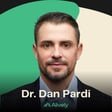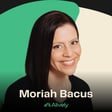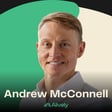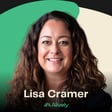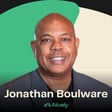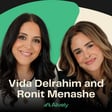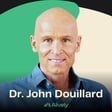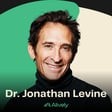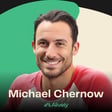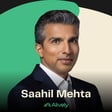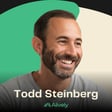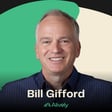
Reverse Heart Disease through Diet with Dr. Michael Greger - E27
In a world where chronic diseases are increasingly prevalent, our dietary choices can serve as powerful preventative medicine – capable of reversing heart disease, reducing the risk of cancer, managing diabetes, and fundamentally reshaping our health trajectory. In this episode, we explore how the foods we choose to put on our plate are not just a matter of momentary satisfaction, but critical decisions that impact our length-term health and longevity.
Dr. Michael Greger is a renowned physician, author and the founder of NutritionFacts.org, a non-profit, science-based public health resource on nutrition and wellness. Dr. Greger is best known for his books, including the bestseller, “How Not to Die,” which explores how dietary choices can prevent and reverse many chronic diseases. His advocacy for a plant-centered diet, outlined in works like "How Not to Diet," continues to guide individuals and communities toward optimal health and longevity in an evidence-backed, accessible manner.
“You actually didn't sleep well, but you forgot how bad you sleep, and you wake up, you’ll be like, ‘Wow, I slept great’. And all it is is the drug faking it.” - Dr. Michael Greger
In this episode you will learn:
- The crucial role of nutrition in medical training and why it's often overlooked in traditional medical education.
- Insights into research on reversing heart disease with lifestyle changes, and the challenges of widespread implementation.
- The impact of stress and social isolation on mortality, emphasizing the importance of lifestyle choices over stress alone.
- The benefits and challenges of intermittent fasting, and alternative ways to boost autophagy.
- Dr. Greger's recommendations for practical dietary changes and the significance of fact-checking nutrition studies.
Resources
- Connect with Dr. Greger on Instagram: https://www.instagram.com/michaelgregermd
- Find out how you can make healthier dietary decisions through Dr. Greger’s online community: https://nutritionfacts.org/
- Shop all the products Dr. Greger mentions in the episode: https://alively.com/products/michael-greger
This podcast was produced by the team at Zapods Podcast Agency:
https://www.zapods.com
Find the products, practices, and routines discussed on the Alively website:
https://alively.com/

